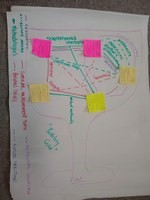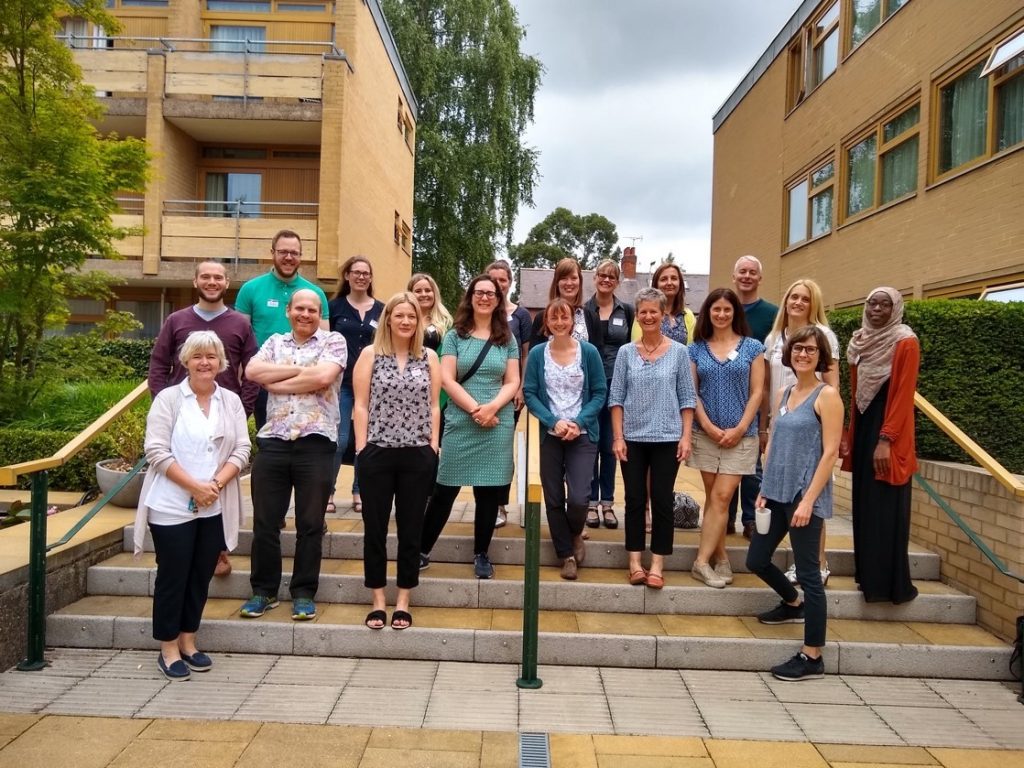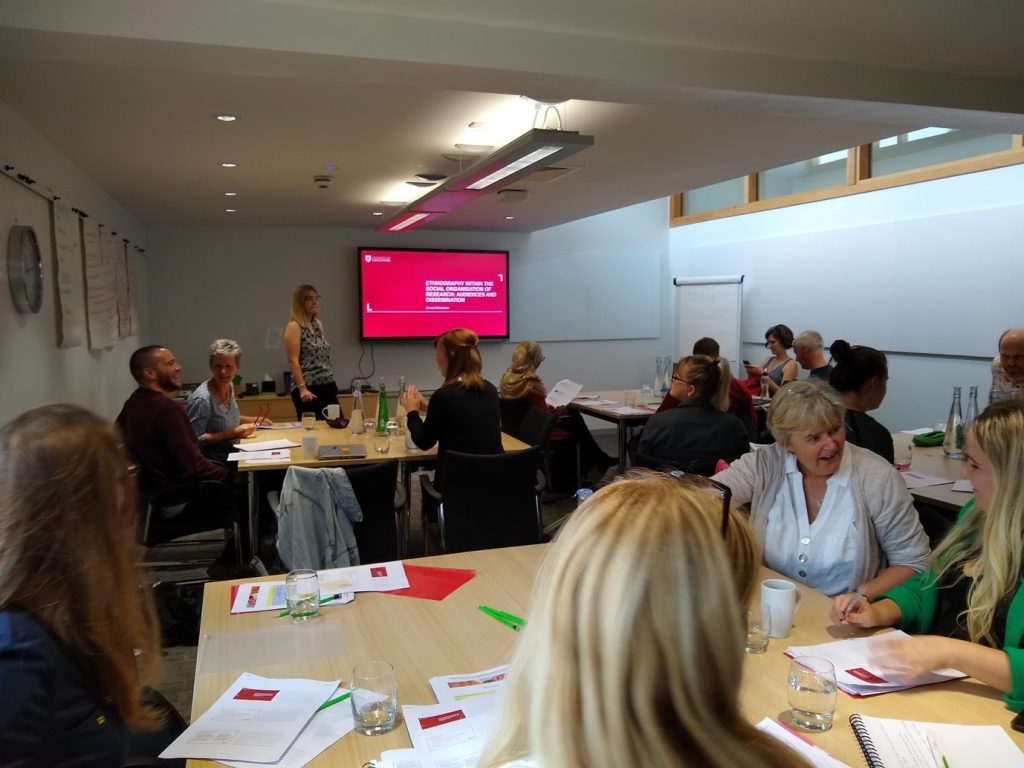SAPPHIRE ran the first Ethnography for Healthcare Improvement Summer School. This was a two-day event held in a very sunny College Court in Leicester. One of the attendees, Daniel Darbyshire from Lancaster Medical School, has written a blog combining his experience with testimonials from other attendees.
Hello, my name is Dan, I am a PhD stud ent at Lancaster University and an emergency medicine doctor in the North West of England. My research is trying to understand staff retention in emergency medicine – what allows people to have sustainable careers in a clinical specialty that has a real problem with exodus. My research methods involve observation in the workplace – ethnography, and one-to-one interviews. I am a reasonably experienced qualitative interviewer, but this will be my first ethnographic study. And while I have attended courses at my university on ethnographic research methods these were not focused on the particular challenges of the healthcare environment. It is with this in mind that I applied to participate in the SAPPHIRE Summer School.
The attendees came from a variety of backgrounds, from established qualitative and health service researchers to a number of PhD students across a range of disciplines. Some of the reasons for attending mirrored mine in terms of building on a qualitative research background or specifically focusing on a PhD project.
For example, Ruth Baxter, a Senior Research Fellow, from the Yorkshire Quality and Safety Research Group, Bradford Institute for Health Research noted ‘I’m a Health Services Researcher whose qualitative experience has predominantly centred around interviews and focus groups. I am increasingly conducting more and more qualitative research and have been intrigued by ethnographic methods for a while. However, prior to the start of the course, I felt that I didn’t really have a full grasp on how ethnography could be used for healthcare improvement, and so wanted to find out more.’
Each day consisted of two discussions in the morning, where researchers from SAPPHIRE built on the focused pre-course reading, drawing on their own experience to engage the attendees in discussion about key topics. In the afternoon we worked in small groups to apply the concepts discussed to our research. The lecturers managed to keep the discussions relevant for both novice ethnographers like me and those with more experience.
The course structure enabled us as attendees to develop our own research ideas. Joanne Goldman, from the Centre for Quality Improvement and Patient Safety, University of Toronto, Canada, shared her experiences; ‘It is now two weeks since returning home from The SAPPHIRE ethnography for healthcare improvement course, and the content and ideas from the excellent presentations, readings and discussions are still whirling around in my head as I enthusiastically contemplate how I can apply insights gained from the course to future research plans. I have prior training and experience in ethnography in healthcare, and this course was an incredible opportunity to learn from leading experts in the field whose work I have followed for numerous years’
Alison Drewett, PhD Researcher, University of Leicester, Department of Media, Communication and Sociology & Speech and Language Therapist, Leicestershire Partnership Trust also added; ‘I had wondered what two days out to focus on a methodology would add to my PhD. The value feels unquantifiable and how apt for a qualitative research workshop. It gave me a greater understanding of the topic but more than that it provided inspiration and excitement to engage with the ideas and move forward with my own PhD research.’
As well as learning from the faculty I can certainly say that I learned a lot from my fellow participants. We shared experiences, challenges and solutions, success and failures, and developed the groundwork for a community of practice. My experiences were echoed by Alison Drewett; ‘there was much to be gained from peer learning from shared narratives of experiences in the field, and individuals’ own career trajectories’.
There were too many engaging and challenging discussions to recount with a satisfactory level of depth in a blog post, but some recurring themes were what ethnography looks like – is there a clear distinction between what is and what is not ethnography or is it more complicated than that? And how context and audience shapes research and how the way we conduct our research both informs, and is influenced by, us as researchers. I found having the space and a framework to think critically about ethnography really helped develop my methodology.

The feel in the room at the end of the summer school was certainly positive, and while I think everyone got different things from the experience I think I am on safe ground stating that the participants all found the summer school worthwhile. This feedback from one of my colleagues summarises the general feeling from the attendees.
‘The ethnography expertise of the SAPPHIRE group is second to none. I was very impressed with this summer school as it allowed participants to be inspired by and learn from the SAPPHIRE researchers for 2 days. It was also wonderful to meet other aspiring ethnographers and to discuss the potential of ethnography for healthcare improvement in the context of our own research topics. I would recommend the course to anyone thinking of using ethnography in their own healthcare research.’ Dr Niamh Humphries, Reader in Health Systems Research, Royal College of Physicians of Ireland





 Subscribe to ekrockow's posts
Subscribe to ekrockow's posts
Recent Comments